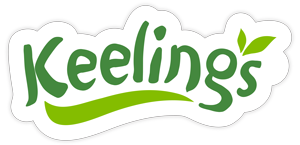This has been a year like no other for all of us—a new way of living that has seen us spending more time at home. With this, there has been less eating out and less gym time, but on the other hand, there have been more walks and more cooking for ourselves and our families. With the vaccine here, there is a light at the end of the tunnel, but in the meantime, let us look at how nutrition can support and strengthen our immune system.
Our immune systems are pretty amazing. They do a great job, on the whole, of defending us against all the germs and microorganisms in the environment which may cause us to become infected or to get sick. However, the first thing to note is that you cannot “boost” your immune system through diet, and no specific food or supplement will prevent you from getting unwell. Good hygiene practices, coughing etiquette and social distancing remain the best means of avoiding infection. However, we need to nourish the body for all systems to be working to the best of their abilities, and the immune system is no exception. The first step is to ensure that you eat a variety of healthy foods and maintain a healthy, balanced diet.
VITAMIN C
has long been known to support the immune system. Vitamin C is thought to increase the production of white blood cells. These are key to fighting infections. Having a diet rich in citrus fruits such as oranges, grapefruits, lemons and limes, as well as kiwis and red peppers, will ensure sufficient levels.
ZINC
is well-known for reducing the duration of the common cold. And zinc works in synergy with vitamin C! This key micronutrient helps the immune system work properly and may help wounds heal. Good sources include lean meat, poultry, wholegrain products, baked beans, seeds, nuts and shellfish.
VITAMIN E
is another antioxidant that that can protect the immune system by neutralising free radicals. Sources of vitamin E include sunflower seeds, almonds, fortified cereals, vegetable oils, hazelnuts and peanut butter.
PROTEIN
also plays a key role in the immune system, especially for recovery and healing. Make sure to include a variety of protein-rich foods such as lean meat, poultry, eggs, beans, peas, unsalted nuts and seeds. Aim to distribute your protein sources throughout the day.
VITAMIN D
has been a big focus during this pandemic. There is increasing evidence showing the protective effects of vitamin D in the immune system. It is particularly important for the bug fighters in our body. Our skin makes vitamin D when it is exposed to the sun; however, due to the lack of sun exposure in Ireland, it is recommended that we get our vitamin D from supplements, especially during the winter months when UV rays are at their lowest. Dietary sources of vitamin D include oily fish, eggs and fortified foods. During autumn and winter months when we spend more time indoors and the sun is weaker, adults and children over the age of one are advised to take a daily supplement containing 10 micrograms of vitamin D.


